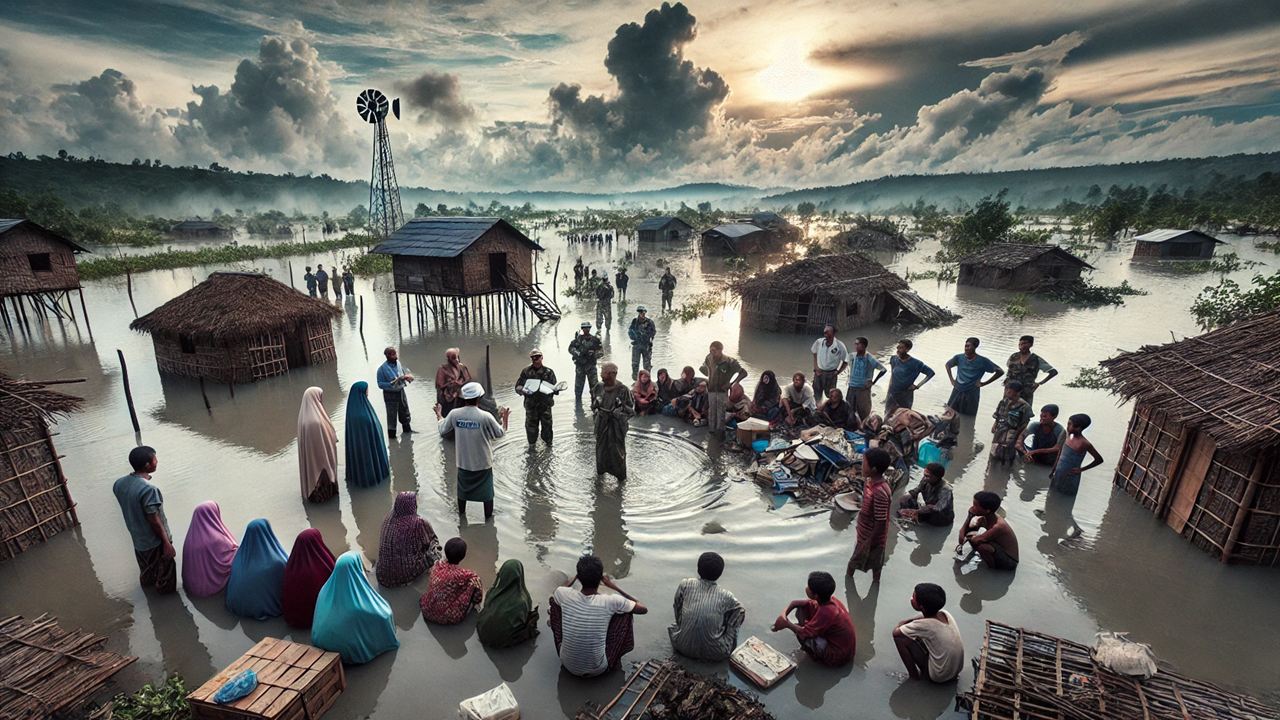Borno State, AfDB, and ICRC Partner to Boost Safe Water Access in Maiduguri
Borno State, located in the troubled Lake Chad Basin, has endured over a decade of violent conflict, mass displacement, and rapid urban expansion.

In a landmark step to address one of northeast Nigeria’s most pressing challenges, the Government of Borno State, in partnership with the African Development Bank (AfDB) and the International Committee of the Red Cross (ICRC), convened a high-level roundtable on 10 September 2025 to accelerate access to safe, sustainable, and inclusive water services in Maiduguri.
The roundtable coincided with the first anniversary of the devastating 2024 floods, aggravated by the collapse of the Alau Dam. That disaster displaced thousands and underscored the urgent need for resilient water systems in Maiduguri and Jere Local Government Areas.
Mounting Pressure on Water Systems
Borno State, located in the troubled Lake Chad Basin, has endured over a decade of violent conflict, mass displacement, and rapid urban expansion. Maiduguri’s population more than doubled between 2006 and 2021, and is projected to exceed 2.5 million by 2030. This demographic pressure has left existing water infrastructure overstretched.
Currently, public water systems can only meet a fraction of demand, forcing many families to depend on unsafe boreholes, water vendors, and untreated sources. The burden of water scarcity falls disproportionately on women and children, who often spend hours fetching water, exposing them to risks and leaving households vulnerable to disease outbreaks.
A Platform for Partnerships
The roundtable drew senior officials from the Borno State Government, Federal Ministry of Water Resources and Sanitation, AfDB, ICRC, World Bank, Agence Française de Développement, UN agencies, diplomats, and a broad network of technical experts.
Participants underscored that water access in Borno is not only a humanitarian issue but also a driver of resilience, social stability, and economic recovery in a region heavily affected by fragility and insecurity.
Commitments and Perspectives
-
Borno State Government Mallam Bukar Tijani, Secretary to the State Government, reiterated the state’s resolve: “Ensuring that every citizen, regardless of location or socio-economic status, has access to safe and affordable water is a top priority. We will work with partners to bridge the gap through technology, expertise, and sustainable financing.”
-
African Development Bank (AfDB) Dr. Abdul Kamara, AfDB’s Director General for Nigeria, emphasized the interlinkages: “Water, resilience, and peace are deeply interconnected. Investing in water is central to the Bank’s Strategy for Addressing Fragility and Building Resilience. Through initiatives like the Inclusive Basic Services Delivery Program, we are helping northern Nigeria move from recurring crises to a future of stability and sustainable development.”
-
International Committee of the Red Cross (ICRC) Doris El Doueihy, head of the ICRC Delegation in Nigeria, highlighted the balance between immediate relief and development: “The humanitarian–development link is not just a concept; it is a lifeline. We must meet urgent needs while investing in long-term resilience to prevent future crises.”
-
Federal Government of Nigeria Representing the Federal Minister of Water and Sanitation, Joseph Terlumun Babarinde Segun Mukaila stressed the national priority: “The Federal Government’s National Action Plan aims to revitalize water, sanitation, and hygiene services. As one of the sectors most vulnerable to climate change, we must adopt innovation and technology to manage resources sustainably.”
AfDB’s Long-Term Investment
The AfDB has already invested over $805 million in water and sanitation programs across Nigeria in the last decade, improving access for at least 8 million people. In Borno State alone, Bank-funded programs have reached 1.6 million people, including 417 interventions in Maiduguri spanning water provision, healthcare, education, and livelihoods.
Outcomes and Way Forward
The roundtable concluded with the Borno State Government committing to establish a steering committee to coordinate with partners for swift implementation. Stakeholders also endorsed the Maiduguri Urban Water Supply Masterplan as the guiding framework for long-term expansion.
Participants stressed that ensuring safe, affordable, and reliable water supply in Maiduguri is critical for public health, resilience, and durable peace in northeast Nigeria. As the region continues to grapple with insecurity and climate stress, this partnership marks a turning point toward sustainable water governance and inclusive development.










